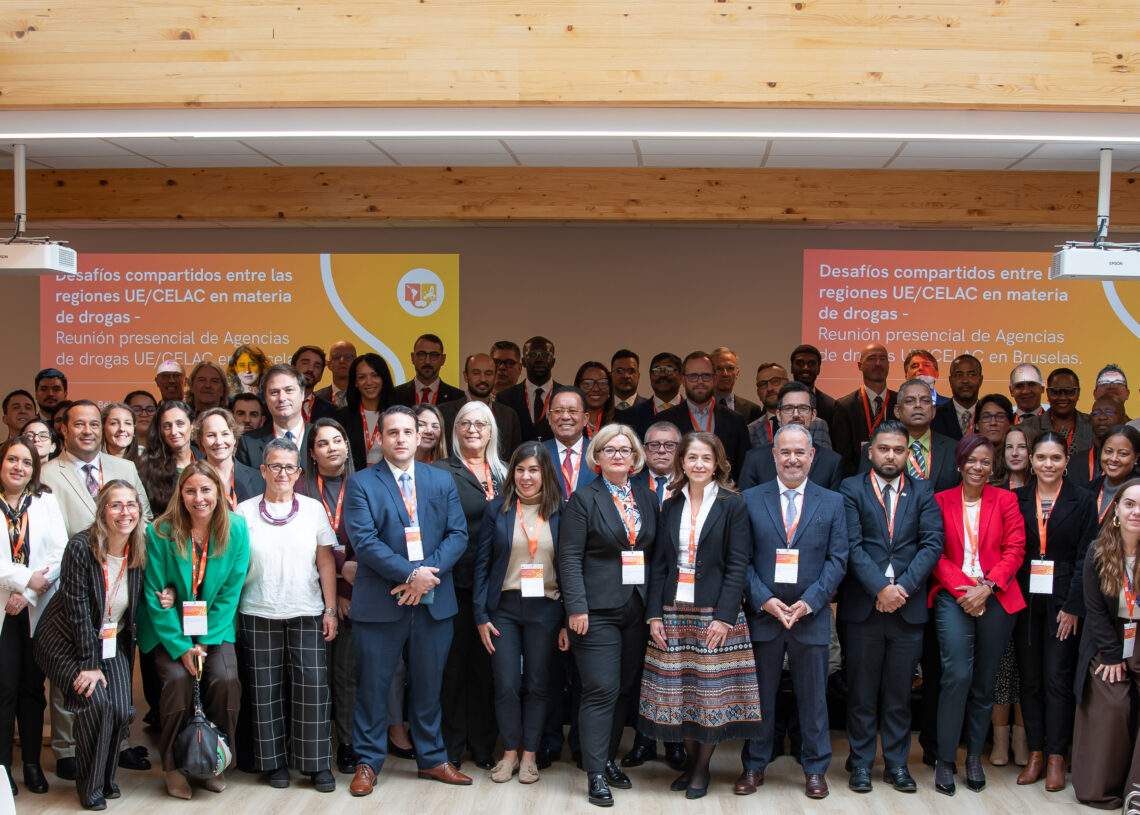An exchange meeting began on 8 October in Brussels between the National Drug Agencies of the European Union (EU) and the countries of the Community of Latin American and Caribbean States (CELAC), promoted by the COPOLAD III Programme in the framework of the EU-CELAC Mechanism for Cooperation and Coordination on Drugs.
The main objective of the meeting was to strengthen the exchange of expertise between CELAC agencies, the European Union and the Embassies of CELAC countries in Brussels, representatives in the EU-CELAC Mechanism on Drugs. In addition to disseminating the cooperation efforts that are being made in public policies on drugs, as well as addressing the challenges of the coming years.
Among the issues addressed were the threat posed by new psychoactive substances to public health and the boost that early warning systems need to address it. The strengthening of asset investigations against drug trafficking and the social use of assets seized from criminal networks were also discussed.
The three days of work included a Joint EU/CELAC Seminar on the first day, a second day in which CELAC members held an exchange with EU services on drug issues, and a third day that allowed the participation of the heads of the CELAC National Drug Agencies in the Technical Committee Meeting of the EU/CELAC Mechanism for Cooperation and Coordination on Drugs.
This exchange is organised by the COPOLAD III Programme to contribute to the implementation of the Peace Declaration agreed at the 24th High Level Meeting of the EU-CELAC Coordination and Cooperation Mechanism on Drugs, held in La Paz (Bolivia) on 22 February 2024.
‘COPOLAD’s role is fundamental in bringing together the technical and the political, the supply and the demand side,’ explained Ibolya Fülöpné, rotating co-chair of the Mechanism. For Peggy Martinello, Director of Public Administration and Social Affairs at the #FIIAPP: ‘COPOLAD III is a brave and ambitious commitment. It is a commitment to dialogue, multilateralism and the implementation of the #Agenda2030 in a time of multiple crisis
‘These meetings, which have not been held for a long time, serve to ground common objectives and deepen some of the issues that we proposed in the Peace Declaration, such as new psychoactive substances and improving the prosecution of drug trafficking finances,’ said Camila Polo, Colombia’s acting ambassador to the EU.






